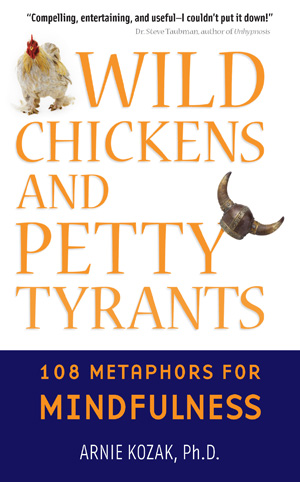Q: “Your book, Wild Chickens and Petty Tyrants, is about mindfulness and you studied with the Dalai Lama. You’re also a practicing psychologist. Can you tell us how your Buddhist background comes into play in your work as a psychologist?”

A: For the past 25 plus years Buddhist practices have influenced my work. Earlier in my career I used them to enhance my therapeutic presence and as a method of self-care. I used them implicitly without ever teaching mediation or concepts, such as the Four Noble Truths, to my patients.
When I started private practice 13 years ago I started to incorporate mindfulness in an explicit way in my clinical work, teaching patients to meditate and offering mindfulness and Buddhist wisdom in a secularized way as a means to alleviate suffering. The Buddha saw himself as a physician or psychologist (but that concept didn’t’ exist 2500 years ago) rather than a religious leader. He taught people how to mange their behavior and mental landscape so as to reduce suffering and dissatisfaction.
That’s the business we are in as psychotherapists and the Buddha’s insights provide powerful tools to help people change their relationship to the conditions of their suffering.
The Buddha used metaphors frequently in his teaching. 108 Metaphors for Mindfulness make these tools accessible in a fun and approachable way.
“108 sparkling insights into
mindfulness” — Larry
Rosenberg, author of Breath by Breath
“Playful, wise, and memorable”
— Tara Brach, author of Radical
Acceptance
“”Fresh and straightforward
voice”– Shambhala Sun
Magazine
If you haven’t already, get your copy now:
Wild Chickens and Petty Tyrants on Amazon
Wild Chickens
and Petty Tyrants now available for Kindle
Wild Chickens
and Petty Tyrants from Wisdom Publications
Wild Chickens
and Petty Tyrants from Your Local Independent Bookseller
